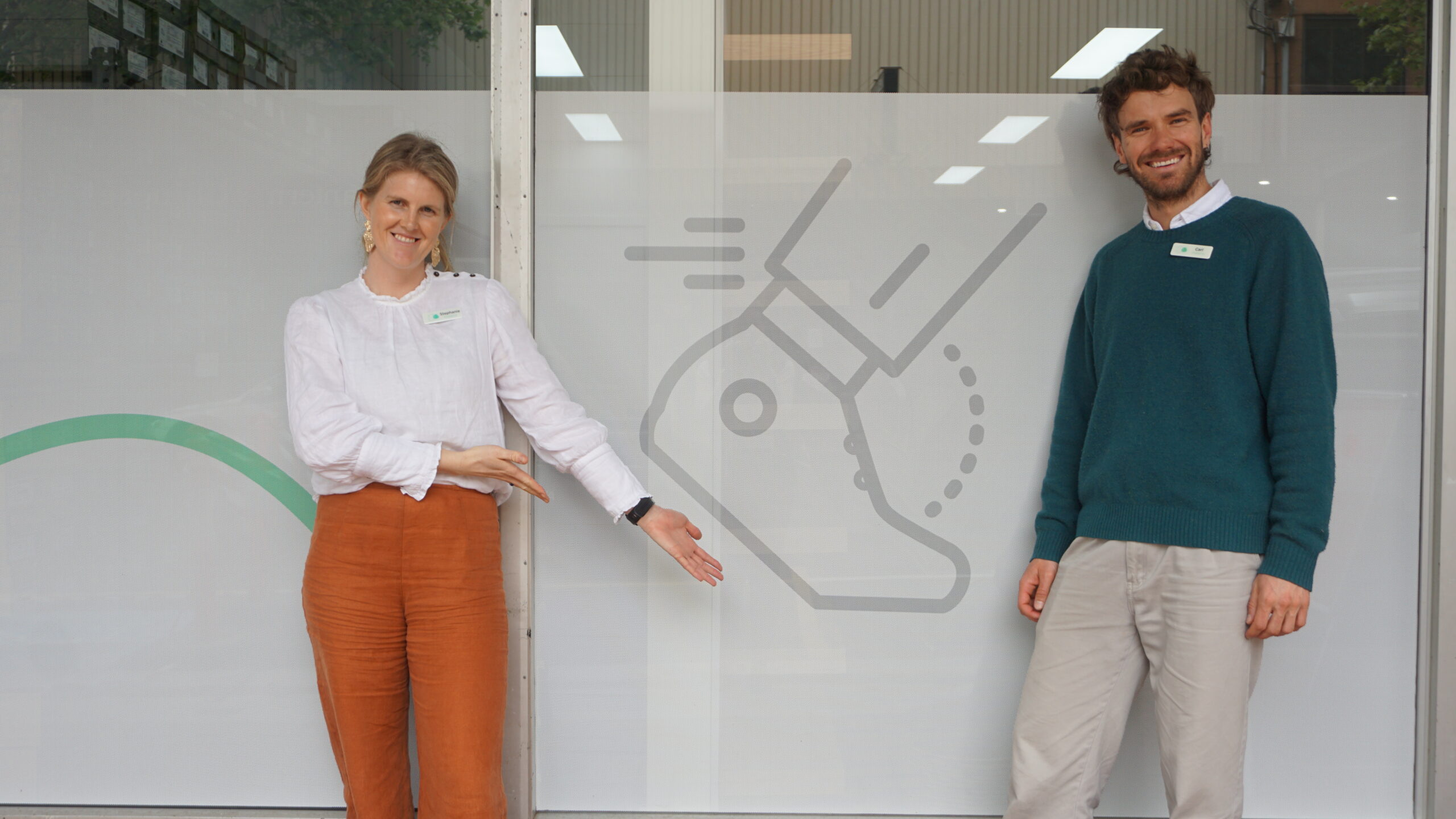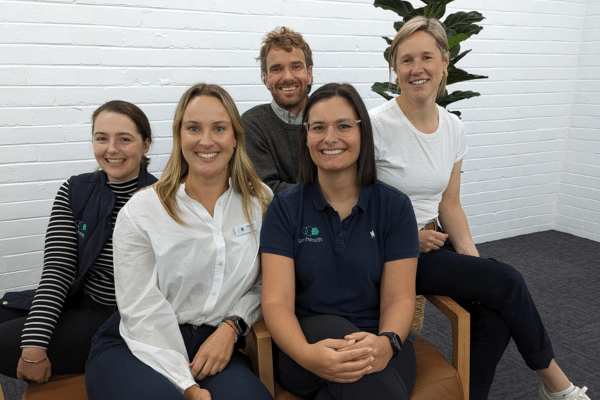‘Biopsychosocial’ is a loooong word but it expresses a beautifully simple concept – that the many different aspects of your life all influence your health and well-being.
You’ve experienced that truth every day of your life and so have your family and friends. We’ll explain the concept in detail below but let’s start with a few real-life illustrations.
Case study 1: New baby
Let’s imagine you had your second baby recently. It didn’t go as planned and you’re struggling in the aftermath.
You endured a long labour with complications that resulted in an emergency C-section. It was scary. Soon you were sent home with your baby and told not to lift anything heavy.
Yeah, right!
Your partner’s not home much and your mum broke her leg recently so wasn’t able to travel down from Queensland. You’re home alone for most of the day, wrangling your toddler, trying to feed your baby and dealing with full baskets of laundry. You’re too embarrassed to admit it but you also keep wetting yourself. You’re not allowed to drive yet but you can’t walk far either because your feet are killing you.
How do we improve that situation? A physiotherapist with expertise in pelvic health can help strengthen your pelvic floor. A podiatrist can treat your post-pregnancy foot pain. But, for your long-term well-being, we also need to address your isolation, birth trauma and probable post-natal depression – and your need for practical day-to-day help.
Case study 2: Recovery after shoulder surgery
Let’s imagine you’ve played tennis socially for years. You love meeting friends and playing a few matches each week, whether it’s singles or doubles.
You’ve always been proud of your powerful serve. But then you tore your rotator cuff. You’ve been out of the game for a while now and you miss both the regular exercise and the social connection. And it’s really painful!
You had surgery a few months ago but your recovery has been slower than you hoped. One study of shoulder surgery patients found patients recovered more slowly if they had depression symptoms and perceived their pain as bad (irrespective of how they measured on mobility tests).
That’s been true for you. You’ve always been a bit of a worrier and now, you’re afraid you’ll never be able to play tennis again. Every time you move your shoulder, it hurts. Your surgeon doesn’t understand why it’s so painful because your range of motion is now quite good. It really does hurt though. In fact, you’re moving your shoulder as little as possible because you’re afraid of triggering the pain.
What’s going on and how do we help? It might involve:
-
Seeing a physiotherapist with skills in managing chronic pain
-
Dealing with the emotional impact of your injury – the grief, anxiety and depression – and working on your thinking patterns so that you’re able to see a brighter future
-
Working with an exercise physiologist to maintain your fitness and get some of those feel-good hormones moving through your body
-
Developing your social networks beyond playing tennis – try inviting your friends to join you for coffee or a trip to the movies.
The biopsychosocial model
There’s a name for an approach to care that considers all the influences on your health: the biopsychosocial model. This aims to address:
-
Biological factors – those relating to your body like your genetics, brain chemistry, physical health and any medications you take
-
Psychological factors – your thoughts, emotions, behaviours, memories, coping skills, temperament and beliefs
-
Social factors – your relationships, family dynamics, work environment and socioeconomic situation.
Until now, you may only have experienced care through the biomedical model as that tends to dominate our health system, especially in regional and rural areas. In this model, health is seen as the absence of illness so the focus is on interventions that treat disease.
But health is much broader than that. As the World Health Organisation says, “Health is a state of complete physical, mental and social well-being and not merely the absence of disease or infirmity.”
Why do philosophical approaches like the biosychosocial model of health matter? Because they strongly influence how healthcare professionals treat you. Are we there just to fix a broken part or treat a particular disease? Or are we there to help you enjoy the best possible experience of life?
Allied health professionals play a vital role here. We’re the physios, podiatrists and exercise physiologists, who take a collaborative approach to your health, working alongside your doctor(s) where necessary.
Putting the biopsychosocial model into action at Gen Health
Healthcare professionals who practice the biopsychosocial model (like we do at Gen Health) will be attentive to your broader situation. We won’t simply treat the problem you came in with and leave it at that. Instead, we’ll see that issue in the context of your broader situation and we’ll do our best to provide you with additional support where you need it.
What does that mean in practice? It could mean that we:
-
Ask you open-ended questions and listen carefully to your responses, picking up on other issues you’re dealing with that might affect your recovery
-
Refer you to others in our team who we believe you help you with some aspects of your care
-
Provide longer appointments so that we can properly explore complex issues like pelvic pain or persistent pain
-
Work closely with any other professionals involved in your care, like your GP or medical specialist.
If you’d like to experience care that’s alert to the many different influences on your health and well-being, please make an appontment with us at Gen Health Hamilton.
Disclaimer
All information is general and is not intended to be a substitute for professional medical advice.


